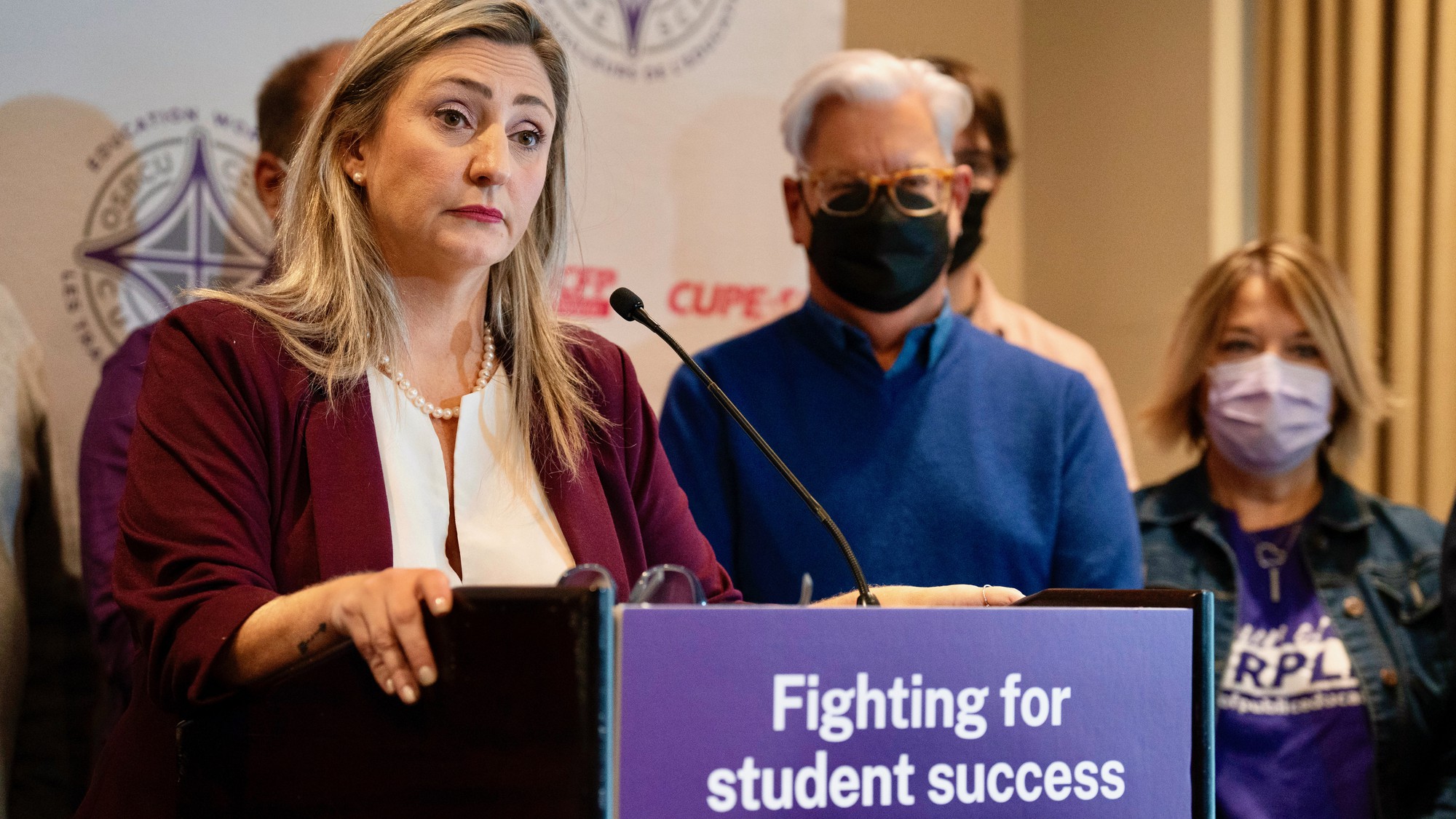The Canadian Union of Public Employees’ (CUPE) education workers began casting their votes on Thursday to accept or reject the tentative contract deal currently on the table.
“Now, it’s your turn to make your voice heard by the government and school boards with the ratification vote,” said Laura Walton, president of the Ontario Board Council of Unions (OSBCU) at a press conference on Sunday.
Both parties came to an agreement just before the 5 p.m. deadline last Sunday after CUPE was set to strike on Monday. Parents, teachers, and school boards across Ontario would have needed to switch to online learning had no deal been reached.
The four-year contract offer includes a $1 per hour annual wage increase that would have CUPE’s 55,000 members see their salaries raised by 14.36 per cent. However, the deal does not include the unions’ request to add more staff to those sectors.
“As a mom, I don’t like this deal. As a worker, I don’t like this deal. As the president of the OSBCU, I understand why this is the deal that’s on the table,” Walton said.
“When you’re being told by the government that there is no possible way that they are going to improve, then you have to do the right thing as a leader which often is very uncomfortable,” she said.
Walton noted that the deal falls short of their expectations.
On Tuesday, CUPE national president Mark Hancock called on members in a statement to vote in favour of the contract offer.
“We’ve secured all that could be secured,” he said. “No deal contains all we seek.”
Education Minister Stephen Lecce said both parties got “something out of the negotiations.” He held a press conference shortly after the tentative deal was reached and noted their focus was on the students.
“The biggest beneficiary of this deal is our kids,” he said.
Lecce highlighted the importance of keeping “stability” in the school year because of the academic regression that has affected students.
Walton emphasized that not providing more services for its education workers creates uncertainty in the province’s schools and noted that there are many ongoing issues that need to be addressed.
“Right now we’re seeing record high pediatric illnesses because our schools don’t have enough custodians to keep them clean,” she said.
“There should never be a parent who’s asked to keep their child home because there are not enough educational assistants,” Walton said.
She said that if members reject the offer, then they will return to the negotiating table. CUPE would still be in a position to strike as long as they give a five-day notice.
The voting process ends on Dec. 5 and an official decision will be made the following day.

